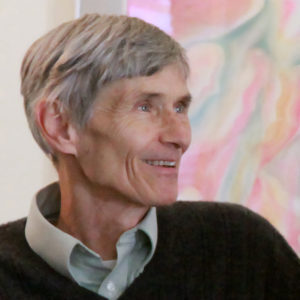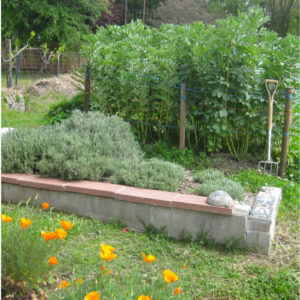Earth Stewardship and Imagination
By Dennis Klocek 5 min read
To truly see the Earth as a living being with a soul capable of will impulses and feelings requires humans to come into contact with the way that phenomena in nature stimulate feelings and will impulses in human beings.
The sequence here is sense experience creating a picture image in the nerves that leads to what neurologists call fantasy. Fantasy is a neurological bridge from the raw sense impulse to the capacity to control the resulting inner pictures. Fantasy requires further development into imagination. Imagination, based on biographical memory, is the ability to regulate sense responses. Biographical memory allows a person to regulate the hormonal cascades in the neurology that are triggered by the sensations. In biographical memory, a person begins to take charge of the picture flow in the inner life. But biographical memory does not instill the moral forces required to treat the Earth as a truly living being. For that a further step to earth stewardship requires a schooling of imagination as a path towards the redemption/ resurrection of nature. This involves a blending of human will with the will forces present in the natural world. This constitutes an esoteric path of nature stewardship based on transformed will.
To treat the Earth as a truly living being requires a schooling of imagination as a path towards the redemption/resurrection of nature. This involves a blending of human will with the will forces present in the natural world, an esoteric path of nature stewardship based on transformed will.
But what is will?
We can trace a hierarchy similar to the neurological hormonal cascade by examining the will states present in these shifting levels of consciousness. Will in this context is a motive force that drives some form of response.
In picture image formation, research shows that the will behind any sensory process impacts human consciousness by setting in motion forces that regulate hormonal secretion. This means that picture-forming motive force (will) comes to the organism through sensation but does not originate in the organism itself. An amoeba moving towards a light source in pond water is a primitive example of this kind of stimulus-response pattern. The outer world initiates creative movements; the organisms respond. Embryology further shows that the secretions that act as the functional aspects of the endocrine or glandular system also serve as the templates for the formation of that system. With the glands being the prime meeting place for nerve and blood, this fundamental principle is highly significant in the development of not only the physiology of a human but also the psychology. The glands serve as bridges between the outer and inner worlds. In the language of neuroendocrinology, the secretions produced by the glands are neurotransmitters that react to stimuli, but they are also neuromodulators that form the organs of the system in which they are active.
Once hormones are in the blood the specific patterning of the cascading of the hormones is determined by biology but the personality reacting to the hormonal cascade is not. The persona exists at a higher level of will. Two people experiencing a fragrant essential oil have the same glandular responses. However, one person smelling the essential oil of helichrysum italicum has fantasies of exotic places and moonlit nights another person having the same sensory input has the fantasy that something has rotted in the refrigerator.
Fantasy from sensory input bridges to personality preferences. Here arises a difficult split in the road regarding social issues related to sense experiences that have already been filtered and enhanced in specific ways by prior programming (like an ad, TV show, movie, social media post, propaganda, etc.). The inner imaginations that humans can tease out of sense experiences from nature are universal and continually unfolding in a creative modality. The sensations are a kind of nutritional cosmic wisdom that the glands translate for the health of the body and soul.
By contrast, the imaginations that result from a specifically willed set of images in a programmed sense experience are designed to influence a much more narrow set of responses. The less than universal patterns in programmed imagery do not have the potential scope for creative response of the more universal, albeit unconscious imagery experienced in nature by the sense organization.
Imaginations from nature arise out of the broad, creative spiritual will that is the formative template for the neuroendocrine apparatus of humans. Programmed imaginations lack this broad potential to support healthy endocrine responses.
The issue here is the will that informs the intention at the epigenetic origin of the imagery. Imaginations from nature arise out of broad, creative spiritual will that is the formative template for the neuroendocrine apparatus of humans. Programmed imaginations lack this broad potential to support healthy endocrine responses. This restriction does not allow for the same degree of free fantasy to take place in the bridging of the sensations to the personality and soul.
Soul responses present in fantasy resulting from natural sources can lead to free imaginations in the personality since they exist at the same level of organization in the organism of the perceiver as they are active formally in nature. The will levels have resonance.
By contrast the organizing motives, or intent, of the will in programmed sensory imagery are not designed to engender free renderings in the fantasy life. The will in programmed imagery is designed for particular fantasy outcomes and it is only through diligent effort that humans can perceive the unconscious will contents of programmed sensations. The will of the broad designing mind of nature can lead to free deeds of imagination in a human. The will of the designated designing mind in programmed imagery is intended to lead to a particular set of imaginative responses in the perceiver.
Progressive social forces among humans require minds that are free to creatively transform raw sensory experiences and the resulting fantasy responses they engender into free imaginations that can deal effectively with unknown elements in the world at large. Without that freedom, the personality is prone to resort to irrational fear of unknowns. This is especially true when the soul is inclined to accept that programmed images coming from the world at large are valid representations of universal truths. Since programmed images are not by definition universal but designed for specific outcomes, they generate mental states that through time become disinclined to distinguish universal truths. Instead, the focus is directed to the correctness of specifics in a limited context.
Constant consumption of programmed images can also engender the belief that images are just imaginary things that have no power.
Constant consumption of programmed images can also engender the belief that images are just imaginary things that have no power. This is a grave mistake that prohibits human access to the creative, biographical potentials of the symbolic realm. Loss of the creative power of imagination ushers in fatalistic, hive mind social processes generated by programming sequences that erode access to the greatest human gift; the free imagination of a free individual.
The pervasiveness of programmed imagery in society eventually diminishes the ability of humans to determine the integrity of imagery presented to the senses. An esoteric schooling of directly interacting with the phenomena of nature can here be of service.
Inwardly engaging the rhythmic flow of morphological sequences in natural form allows the cosmic imaginations behind the biological phenomena of nature to imprint on the soul a sense of the rightness of things. The spiritual reality behind natural forms has an epigenetic morphological genius that is primal to the created world and universal in its scope.
This lofty influence can easily be developed by observing a flowering plant every day for a week and then sharing your observations with a friend. These simple acts are in reality a first step in a deep schooling of the senses that is sorely needed in times of social confusion. These kinds of activities unite human good will with the creative good will constantly at work in the transformative processes of the cosmos.

Dennis Klocek
Dennis Klocek, MFA, is co-founder of the Coros Institute, an internationally renowned lecturer, and teacher. He is the author of nine books, including the newly released Colors of the Soul; Esoteric Physiology and also Sacred Agriculture: The Alchemy of Biodynamics. He regularly shares his alchemical, spiritual, and scientific insights at soilsoulandspirit.com.
1 Comments
Leave a Comment
Similar Writings
Working Out in the Soul Gym
Finding it difficult to lug your suitcase upstairs? Work out a few times a week at the gym and your suitcase soon begins to feel lighter! Likewise, going to the “soul gym” every day develops your capacity to remain peaceful amidst the pressures of life. Just as workouts at the “Y” build muscular strength and…
Farm or Garden?
Artisanal agriculture is based on small scale methods. The illusory power over nature that drives large scale agriculture can be seen in a five hundred horsepower John Deere tractor. To duplicate that power with five hundred actual horses would require setting up teams and harnesses for a double column a quarter of a mile long.…

Incredible articulation of the root of soul sickness that pervades our world at this time. Deeply grateful for these illuminated distillations. Soul food at its finest.